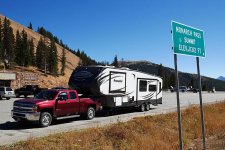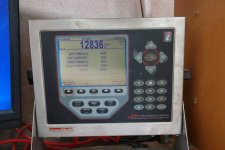Thanks for the responses so far.
Ever mechanic/diesel owner says dont buy a diesel We can't afford an injector replacement or tranny , or at least it would be a very unhappy circumstance. The preference is obviously a diesel 3500.
So a couple things here. If we went diesel, knowing there are no guarantees, and this is a little about predicting the future, but if you have, say 180,000 miles on it and they replaced the tranny 30k ago, is it likely safe? That is, do these expensive issues, avoiding particular certain diesel years, (Ford 2004 - 2006 6.0 L and so on) relegated to the outlier truck? is this a case of 100,000 trucks are good but the 1000 that are a disaster are the ones you hear about on the net? What is your experience with your own diesel trucks?
Second, we ran into a truck RV combo. The RV was a 35 foot Open Range that looked to be in good shape but it was his truck that was the prize. It was a 2006 Chevy 6.0 Gas. It had some performance chip to push the horsepower to 375. It had a coolant system and a temp gauge for the tranny built in, 113,000 miles, a $3000 hitch that was the auto rail kind? This was built specifically to haul this RV, which was 9,000 lbs empty. It seemed like the much safer way to go though he never used it outside of Florida / Georgia.
We hear that with the increased weight of a 350/3500, the hitch weight isnt much difference. That especially if you enforce the stock 2500 with heavier shocks or about everything but the extra leaf, you should be fine.... Then the only thing left is do you have enough power with that gas engine to pull that RV , considering the 2500 weighs less than the 3500.
Finally, as the first poster mentioned its the GVRW weight you need to consider, but isnt that the weight of the RV with people and belongings in it? In other words the weight the RV can handle once it is disconnected from the truck and people living inside it? When I look at an RV that is 11,400 dry weight, I cant imagine more than 1000 pounds of clothes, cooking utensils etc that would be loaded in.
I realize my thinking is all over the place but I am trying to get a good bead on what is outright unsafe, what will absolutely not work or what will just be a frustrating travel day every 2 weeks offsetting the greater peace of mind of a gas fueled truck.


